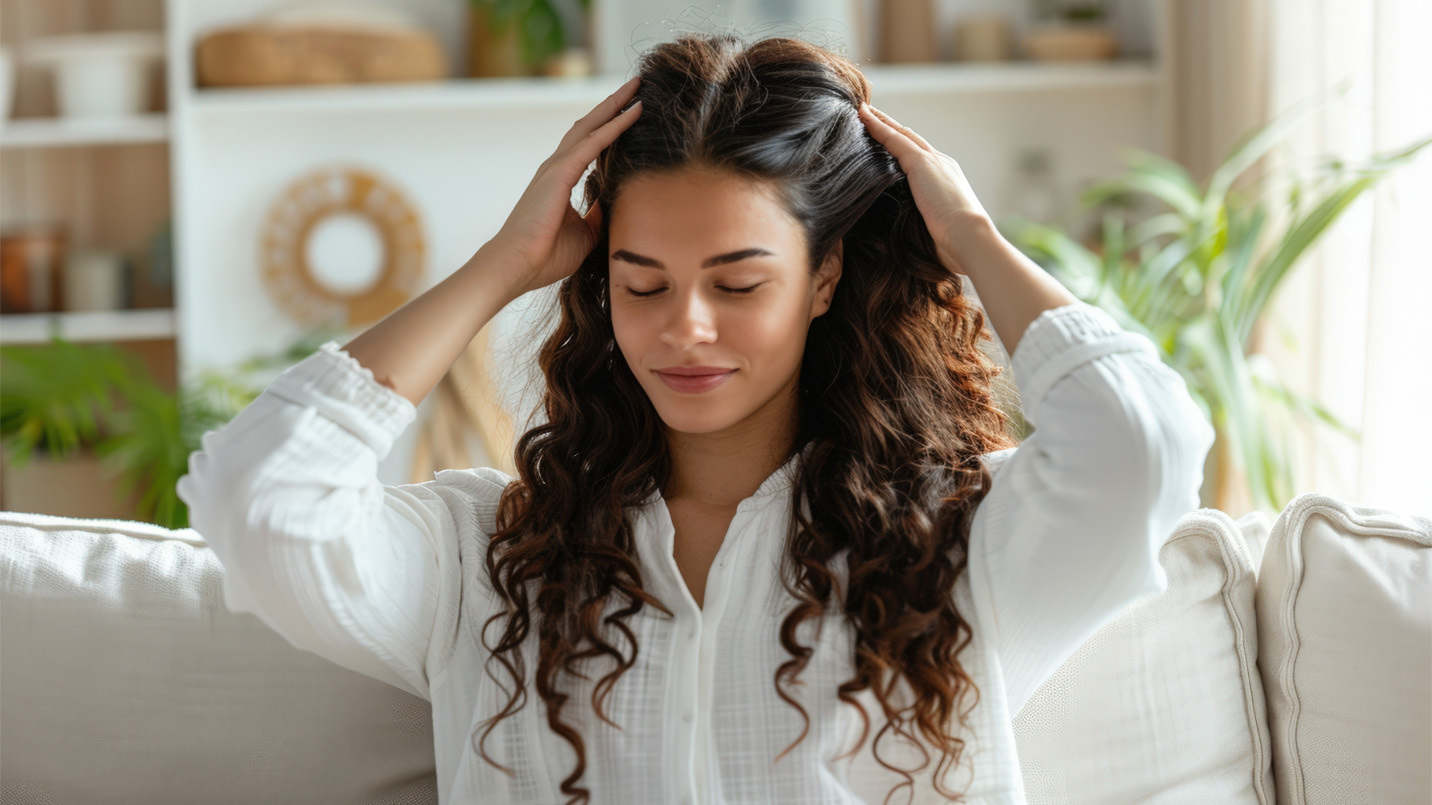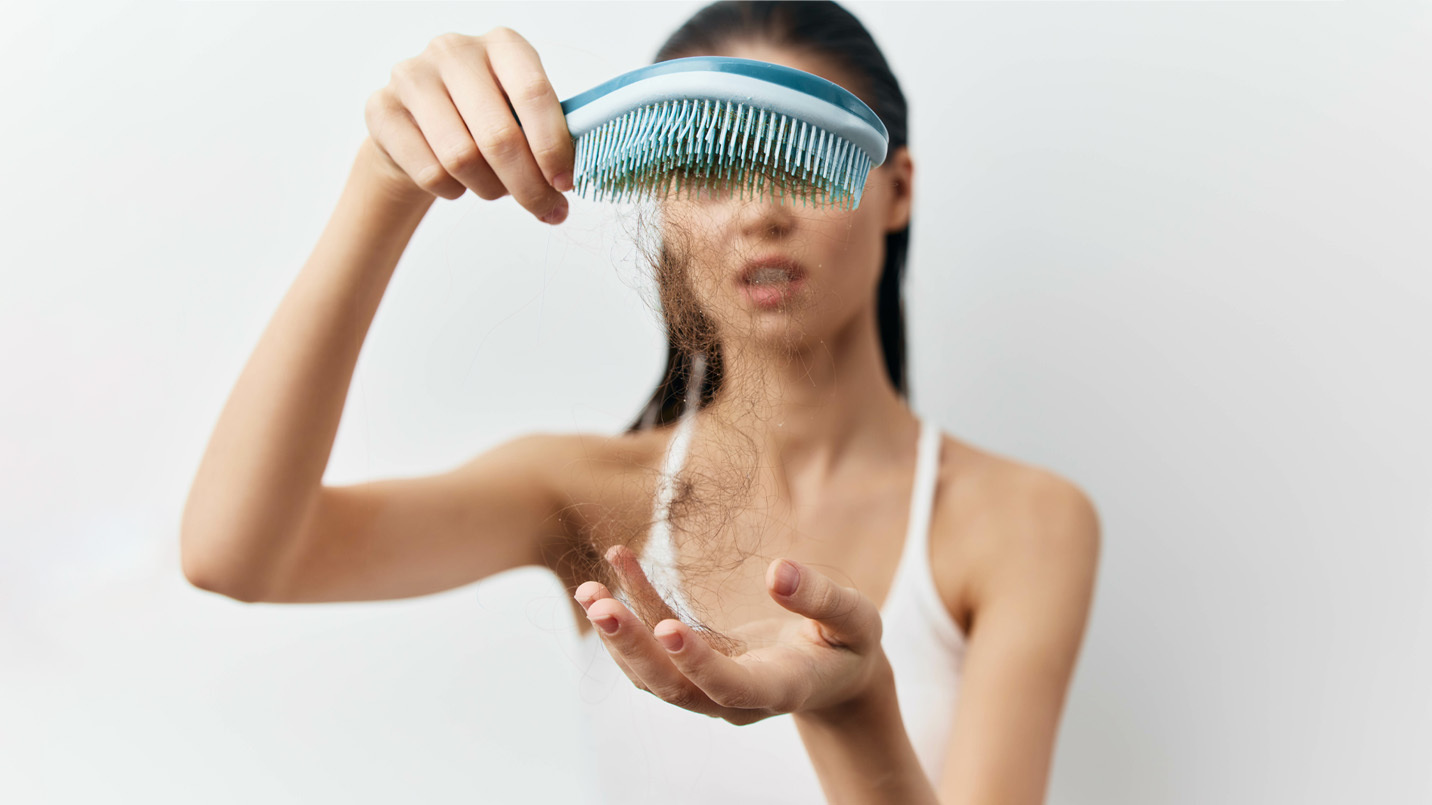The Role of Scalp Health in Hair Loss Prevention
How to improve scalp health for fuller, healthier hair

Hair loss and hair health is a common concern for men and women alike. However, the key to strong, healthy hair starts at your scalp. Below, we will discuss how the scalp works, how to recognize an unhealthy scalp, and what you can do to bring your scalp to a higher level of health.
Connection between scalp health and hair health
The scalp isn’t just skin from which your hair grows, it’s a living organ that plays a vital role in keeping your hair follicles healthy. The scalp is made up several important components, including:
Skin: The skin of your scalp holds your hair follicles, oil glands, and sweat glands. It is also rich in blood vessels and lymphatic networks that ensure plenty of oxygen and nutrients get to those hair follicles and lymphatic vessels to carry away fluids and toxins.
Connective tissue: The scalp contains a tough fibrous sheet of connective tissue that itself contains many of the larger blood vessels, lymphatics, and nerves. There is also a layer of loose, soft connective tissue that lets the upper layers of the scalp move smoothly over the skull.
There are several scalp conditions that could lead to hair loss. These can range from things like dandruff to dermatitis, infections, inflammation, and psoriasis. In order for your scalp to effectively deliver nutrients and oxygen to your hair follicles, it needs to be healthy.
Signs of an unhealthy scalp
There are plenty of signs and symptoms of a scalp that needs a little extra TLC. Some of the things to look out for are:
Dryness
Flakiness
Oiliness
Redness
Itching
Irritation
Sores
Scabs
If you are experiencing any of these issues, there are some things you can do to improve your scalp health..
Tips to improve your scalp health
Keeping your scalp healthy takes attention and care. Here are some tips to keeing your scalp happy and healthy.
Cleanse your scalp
You should gently cleanse the scalp to remove dirt, oil, and hair products that have built up. Avoid using harsh chemicals or overwashing — these can cause additional irritation.Look for ingredients like zinc pyrithione, zinc carbonate, niacinamide, panthenol and caffeine in your shampoo.h These have been shown in studies to improve your scalp health.
Exfoliate your scalp
Gentle exfoliation can help remove dead skin that clog the pores of the scalp. The exfoliator can just be a gentle scalp brush that you use with your cleanser or a scrub made with things like salt or sugar. You want to make sure not to over-exfoliate as that can make things like dryness or irritation worse.
Moisturize your scalp
After cleansing and exfoliating, moisturizing the scalp is also important to prevent dryness. Gentle scalp massage can also help to stimulate blood flow to the scalp.
Skip the harsh chemicals
Finding the right products for your skin and hair type can be tricky, but as a general rule, opt for products that are free from harsh chemicals, sulfates, and silicones. A gentle cleanser and conditioner should suffice, but you can also look for an exfoliating product if you tend to have more buildup on your scalp.
Get a good nights sleep
Lastly, getting enough sleep (7+ hours a night), and managing stress levels can also improve the health of your scalp and hair. Hormones can do some wacky things when they get out of balance and getting enough sleep every night can keep them regulated.
How nutrition affects your scalp
As with most things in your body, the scalp can be affected by what you put into your body. Be sure to eat a balanced diet that is mostly made up of whole foods like fruits, vegetables, lean proteins, and whole grains.
In addition, make sure you're getting enough iron, zinc, vitamins, and omega-3 fatty acids in your diet. While most supplements marketed toward hair loss haven’t been shown to directly increase hair growth, replacing vitamins and minerals that you are deficient in can certainly help. If you think you might have a nutritional deficiency, reach out to your doctor or dermatologist to see if a supplement might help.
Professional help with your scalp
If you’ve tried the suggestions above but are still having issues with your scalp, then it’s time to make an appointment with your dermatologist. They can take a look at your scalp and help you identify the cause of your issues and suggest treatments for it.
Scalp health for the win
Keeping your scalp healthy is a great way to prevent hair loss. Pay close attention to the health of your scalp, and integrate a hair and scalp care routine that keeps your scalp healthy and balanced. If you have persistent issues with any scalp symptoms, talk to your dermatologist to formulate a plan that will work for you. Remember, your scalp is a living part of your body that needs dedicated care and love in order to thrive!


